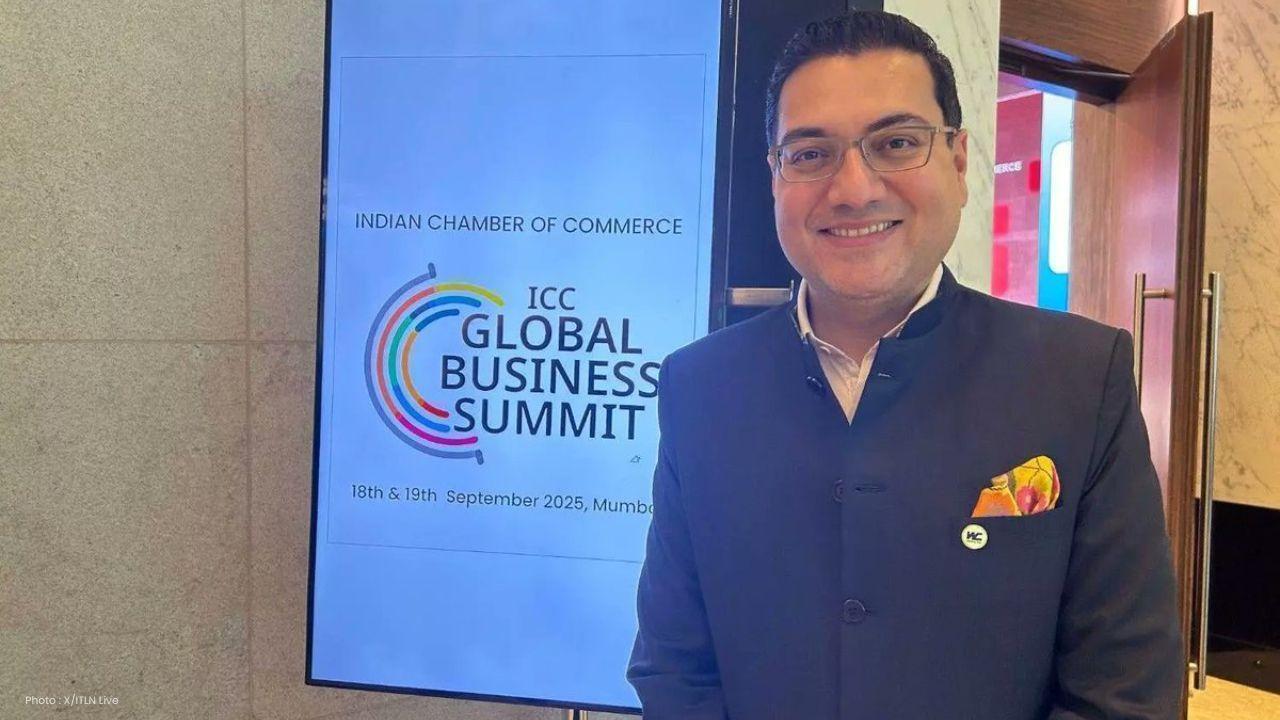
Post by : Avinab Raana
Western Carriers India, a rising name in the logistics landscape, has revealed an ambitious plan: develop and deploy a fuzzy logic model aimed at transforming how logistics forecasting and operations work in the country. In comments made at the Indian Chamber of Commerce Global Business Summit, CEO Kanishka Sethia laid out how predictive models rooted in fuzzy logic could shape the future of Indian transport and logistics possibly within the next four to five years.
Unlike traditional binary logic, where variables are strictly true or false, fuzzy logic allows for reasoning across a spectrum values between 0 and 1. That flexibility lets models handle vague, uncertain, or noisy data more gracefully. For logistics, where demand, traffic, weather, vehicle delays, and supply chain disruptions rarely follow clean patterns, fuzzy logic can offer more accurate predictions, resilient routing, and smarter inventory management. Western Carriers sees this as an evolution from reactive operations to anticipatory logistics.
The Indian logistics sector is gaining momentum: expanding at about 11% compound annual growth rate and projected to reach US$380 billion in value by year-end. This growth is fuelled by government push such as the National Logistics Plan, the Gati Shakti infrastructure programme, and development of Multimodal Logistics Parks. CEOs and executives increasingly believe technology will drive the next leap, as scale, complexity and customer expectations rise sharply.
In highlighting India’s progress, Western Carriers points to several key metrics: a bumper year in inland waterway cargo movement (≈ 145 million tonnes), improved rankings in global logistics indices (India now 38th in the World Bank’s Logistics Performance Index), and significant infrastructure investment. These serve as both proof of opportunity and baseline measures to set expectations for what predictive tools might achieve.
Western Carriers is currently developing a predictive logic framework powered by fuzzy logic. Key focus areas will likely include demand forecasting, optimized route planning, real-time deviation detection (for delays, traffic, weather), and more nuanced inventory management. By estimating probable outcomes instead of binary yes/no outcomes, the model can allow for better decision making in the face of uncertainty—whether that’s a shipment arriving earlier or later, whether demand spikes in particular regions, or whether last-mile disruptions might occur.
If successful, this model could produce multiple advantages: reduced idle time for vehicles, fewer unexpected delays, better utilisation of fleet and warehousing, lowered logistics cost per unit, and improved customer service through more accurate delivery estimates. However, building such systems is technically challenging. To do this well, Western Carriers will need high quality data, infrastructural sensors, reliable IoT inputs, clean digital records, and strong analytics. Data privacy, system integration, change management, and staff training are additional hurdles.
Government policies are helping seed the transformation. The National Logistics Plan and Gati Shakti Yojana are helping improve connectivity and infrastructure. Multimodal Logistics Parks reduce transit times and cost. These trends support the type of digital infrastructure—better roads, ports, connectivity, power, that predictive models need. Western Carriers’ plans align well with these policy environments, helping ensure that predictions and logistics operations feed off stronger physical infrastructure, not just on theoretical models.
According to Mr. Sethia, the goal is to roll out predictive logic powered by fuzzy logic over the next four to five years. While exact details remain in development, this timeline suggests phased implementation: proof-of-concept stages, pilot projects in specific corridors or for certain clients, scaling to national operations, and adapting across different modes (road, warehousing, multimodal). The scale possible in India with huge volumes, varied geographies, and growing logistics demand makes it fertile ground for innovation if executed well.
India’s logistics challenges, fragmented supply chain actors, poor visibility, unpredictable delays, seasonal demand swings have long been held back by simplistic models. Fuzzy logic’s ability to work with “grey zones” (uncertain demand surges, partial information) could reduce waste, inefficiency, and cost. Western Carriers’ initiative may not just be about improving its own performance, it could raise the bar across the industry, pushing competitors and clients to embrace data, AI, predictive tools, and more refined digital operations.
Western Carriers’ move to build fuzzy logic-based predictive systems signals that Indian logistics is stepping into a new era. Not just moving goods, but anticipating when, where, and how to move them with greater certainty. The coming years will test whether vision meets execution: whether data infrastructure, analytics capability, and operational change align. But if they do, we may soon see logistics that run less by luck and more by intelligent forecasting. A transformation that benefits businesses, economies, and customers alike.
#trending #latest,#PredictiveLogistics #FuzzyLogic #LogisticsTech #SupplyChainInnovation #IndianLogistics #WesternCarriers #SmartWarehousing #TechInLogistics










Advances in Aerospace Technology and Commercial Aviation Recovery
Insights into breakthrough aerospace technologies and commercial aviation’s recovery amid 2025 chall

Defense Modernization and Strategic Spending Trends
Explore key trends in global defense modernization and strategic military spending shaping 2025 secu

Tens of Thousands Protest in Serbia on Anniversary of Deadly Roof Collapse
Tens of thousands in Novi Sad mark a year since a deadly station roof collapse that killed 16, prote

Canada PM Carney Apologizes to Trump Over Controversial Reagan Anti-Tariff Ad
Canadian PM Mark Carney apologized to President Trump over an Ontario anti-tariff ad quoting Reagan,

The ad that stirred a hornets nest, and made Canadian PM Carney say sorry to Trump
Canadian PM Mark Carney apologizes to US President Trump after a tariff-related ad causes diplomatic

Bengaluru-Mumbai Superfast Train Approved After 30-Year Wait
Railways approves new superfast train connecting Bengaluru and Mumbai, ending a 30-year demand, easi